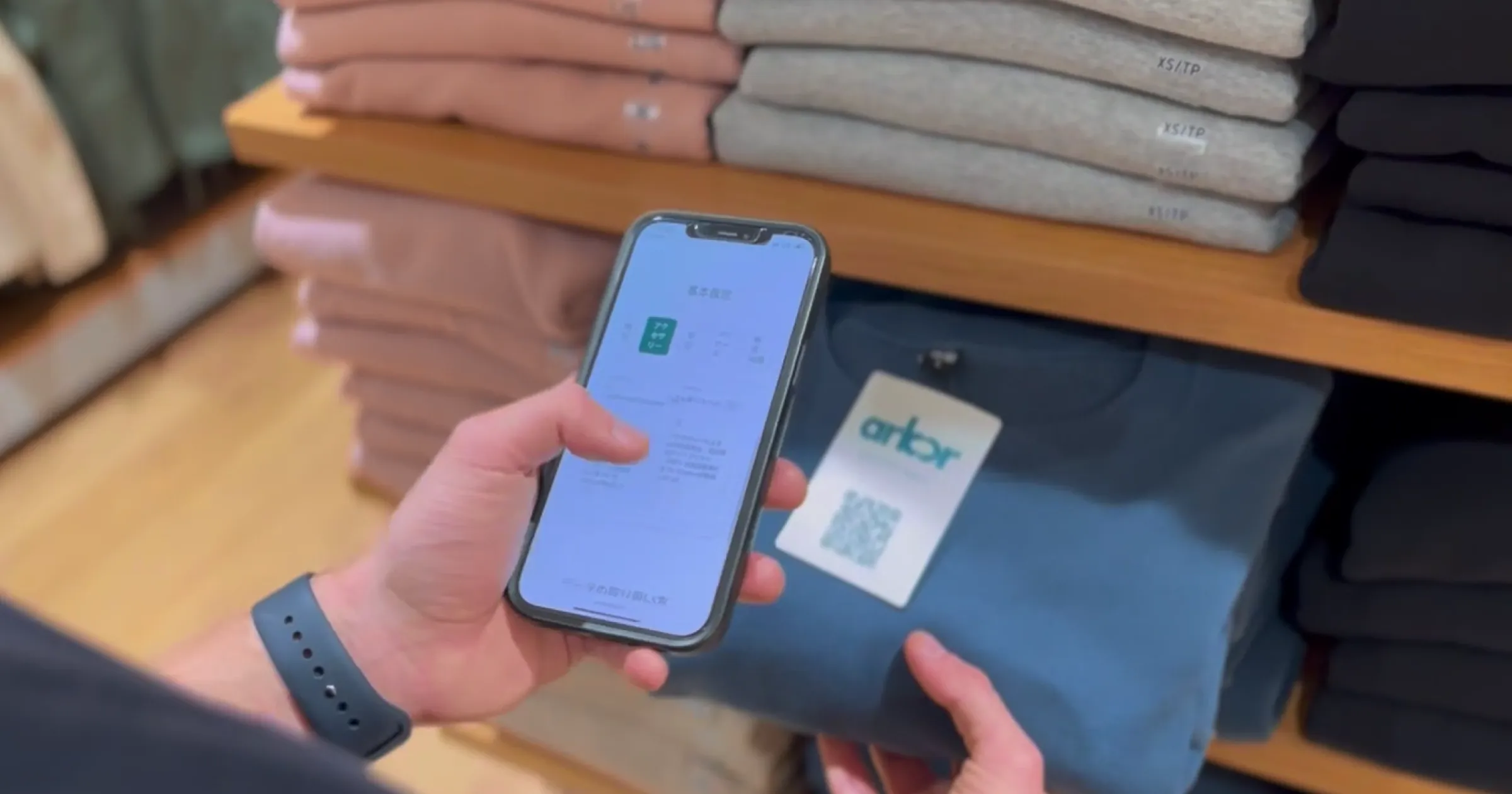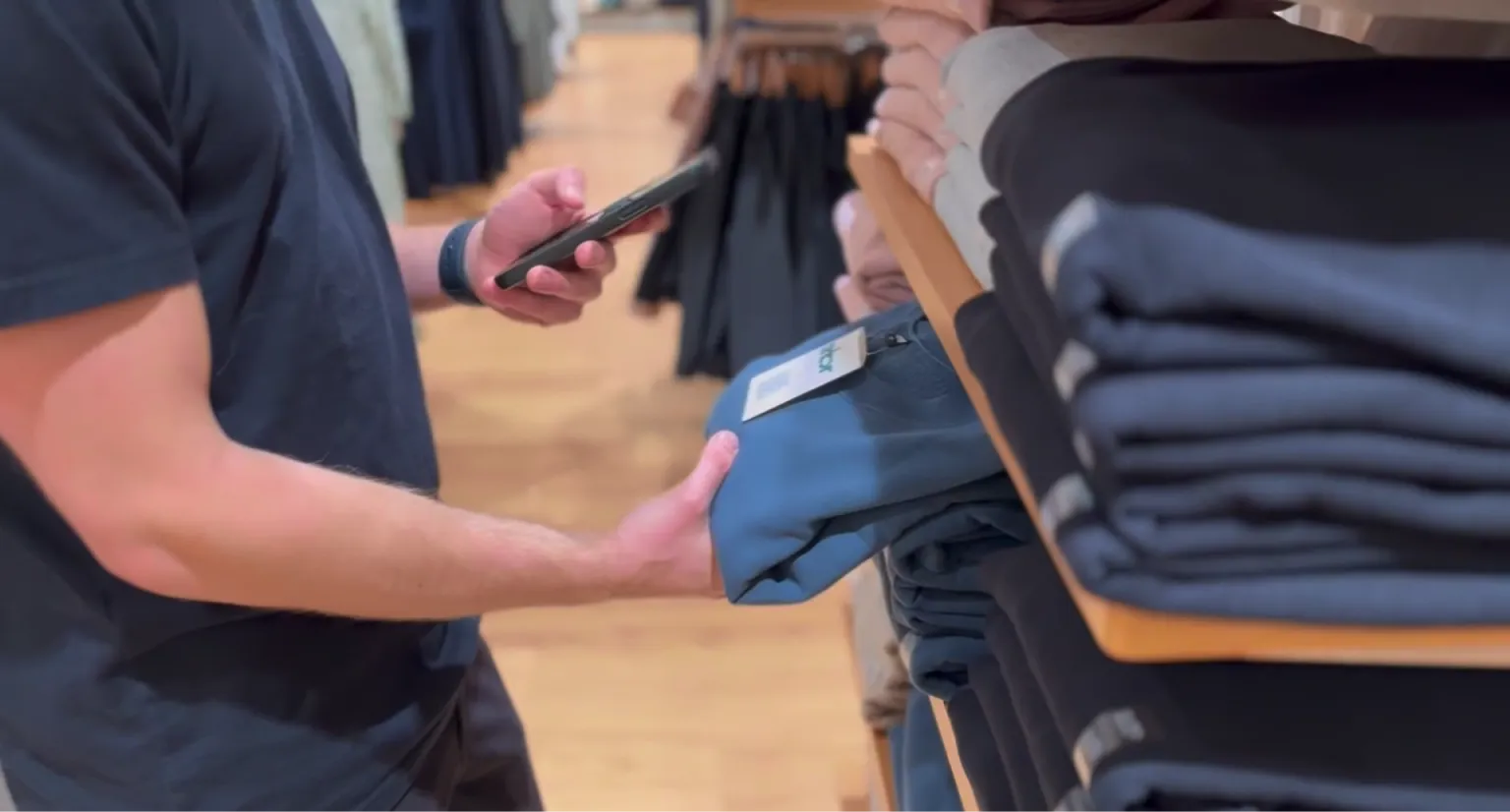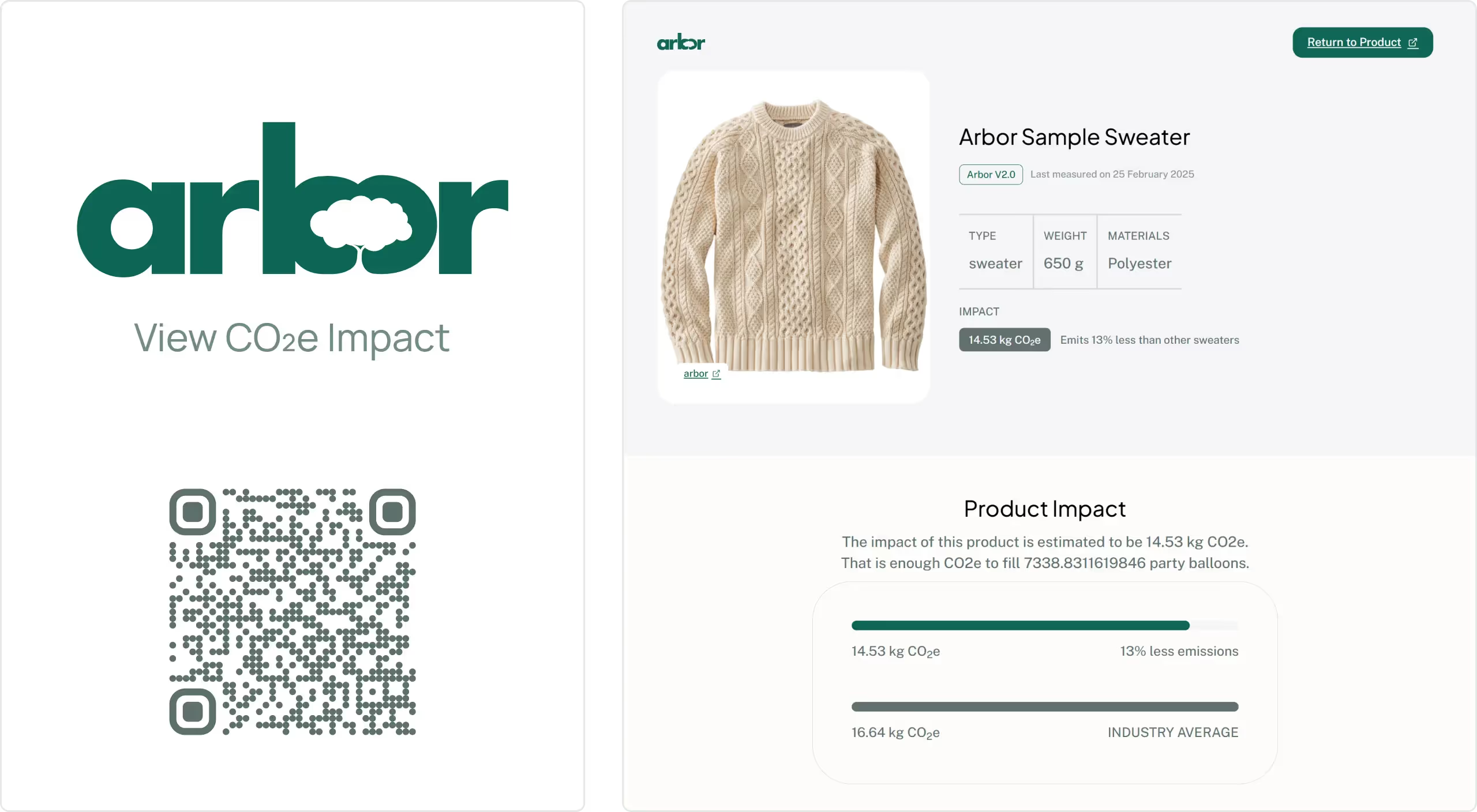
.svg)

Consumers, especially Gen Z and millennials, are increasingly buying products that align with their values. As interest in environmental responsibility continues to rise among Japanese consumers, Mash Style Lab (Mash) and LUMINE saw an opportunity to engage mall shoppers and make a business case for sustainability by making the carbon impact of products visible.
To test the real-world effectiveness of sustainability messaging, Mash and LUMINE partnered with Arbor to explore how carbon transparency could influence in-store customer behaviour, brand perception, and the retail experience for consumers in a high-traffic mall in Shinjuku, Tokyo.
The project was designed to answer the question:
Does product-level sustainability information impact consumer purchasing behaviour in-store?
To answer this, the initiative aimed to evaluate whether sharing carbon footprint data, accessible via QR codes on product tags, would resonate with customers and influence how they interact with products and perceive the brand.
Specifically, the project sought to:
The initiative was designed as a phased approach to test, validate, and scale the impact of carbon transparency.
The initial phase focused on assessing customer participation, shopping behaviour, and feedback in a high-traffic mall in Shinjuku, Tokyo. This pilot was designed to establish a baseline and validate key assumptions before a broader rollout.
Mash and LUMINE launched an in-store pilot using Arbor’s carbon transparency platform, starting with a small test in four stores.
Arbor’s platform calculated the carbon footprint of 30 products across select brands. This generated product-specific sustainability data from raw materials through to end of life. QR code tags were attached to products, linking to digital transparency pages that detailed the environmental impact of each product. This integration allowed customers to access credible, easy-to-understand data while shopping, empowering them to make more informed, values-aligned decisions. In-store signage encouraged interaction, and post-scan surveys captured feedback.

Based on customer survey results, engagement with the product’s carbon footprint data led to nearly half of those shoppers (45.7%) completing a purchase. This strong correlation highlights how accessible environmental data can influence consumer behavior and increase revenue. Customer response was positive, with 90.5% reporting a more favorable impression of the brand. 93.9% of consumers also believed that this type of CO₂e visualization should become a more prevalent practice, showing a demand for higher transparency in the market.
The second phase, conducted from April 25 to May 25, 2025, expanded the project across additional stores. The objective was to test the scalability of the pilot’s positive results and further refine the implementation strategy.
After the success of the initial pilot, the initiative was expanded across eight high-traffic mall stores, doubling the store count and enriching the experience with improved UX and targeted customer engagement. Surveys were once again used to measure impact at scale.
To empower local businesses, a Japanese version of Arbor’s platform was launched, allowing users to input data, create measurements and generate transparency pages.

reported having a more favourable impression of a brand that provides transparency into its products' CO₂ emissions.
believe that this type of CO₂ visualization should become more widespread, signalling a clear market demand for greater transparency.
who scanned the QR code went on to purchase one of the tagged products from the collection.
The project is thought to provide strong indications supporting Arbor’s carbon transparency model in a retail setting.
Arbor leverages automation and AI for fast, verifiable emissions calculations. The platform maps emissions at each stage of a product’s lifecycle, providing comprehensive visibility into the environmental footprint of individual products at scale.

By disclosing CO₂e emissions data through QR codes on product tags, Arbor’s platform helps enable brand differentiation and provide an engaging customer experience. When scanning the QR code, customers are directed to a customized product transparency page tailored to the specific product they are viewing. A new generation of consumers is actively thinking about their impact on the planet, and offering these interactive experiences will help brands better connect and relate to modern consumer values.

By working with Arbor, Mash, and LUMINE, we brought sustainability to the front-of-store experience. They empowered consumers to make more informed decisions, strengthened brand perception, and uncovered a powerful lever to drive engagement and conversion.
This project suggests that authentic, data-driven climate storytelling can shape customer behaviour, unlock a competitive advantage, and help redefine what it means to embed sustainability and transparency across a business.
We look forward to empowering more Japanese businesses to lead the way and redefine what it means to be sustainable to them and their customers. A special thanks to MASH, LUMINE, JCB, and JR East for leading this initiative and introducing Arbor’s Platform to the broader Japanese community.
